Blog / Military News
We Forget That September 11th Cost Everyone Something
Share this story
Share this story
The call came early in the morning. Severely hungover, I silenced the blocky Nokia cellphone next to my head and rolled over. Despite hanging up the next call, the rings came once more, so I relented and answered.
“Hello?”
“Benjamin!” The voice was frantic on the other end. “Turn on the TV now!”
“Mooooommmmm,” I groaned. “It’s, like, super early. What do you want?”
Her frenzied voice continued to climb in pitch. “Turn on the TV!”
I threw my phone into a recliner and climbed down from the loft where I slept. My mom continued to ask if I’d turned on the TV, her voice muffled in the seat cushion. Grabbing the remote, I turned on the TV and moved the phone to my ear. I started to say something but stopped. One of the World Trade Centers in New York was smoking and on fire.
I read the news crawl on the screen quickly, then said, “Looks like a plane accidentally ran into a tower in New York. What’s the big deal?”
Before my mother could say anything, I watched another plane slam into the second tower, creating a sunburnt orange explosion. My jaw went slack, and I let the phone slide from my face while I heard my mom gasp on the other end.
Depending on how old you are, you likely have a memory of the September 11th, 2001 attacks and can recall it with clarity. The day’s events became a moment suspended in time where the country watched in horror and then rallied together from the ashes. For those of us serving in the military, however, that day transformed our lives dramatically.
Exactly two years to the date from the September 11th, 2001 terrorist attacks, I found myself rappelling into caves holding a 9mm pistol and a flashlight. We’d hook a rope from the end of our Humvee and then descend into the abyss. The experience didn’t cause me to reflect on the lives lost in the towers, but of tunnel rats in Vietnam. It was surreal, scary, and somewhat exhilarating. I knew it’d make for a story to tell the grandkids one day, I told myself.
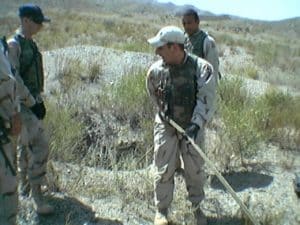
When I returned home from Afghanistan, I discovered people also thought it was “cool” that I got to hunt for terrorists on the anniversary of the attacks. They would often bring up the 2,996 men and women killed on 9/11 and our righteous retribution. But oddly, I could only dwell on my dead friends.
Danton “Kyle” Setsinger got killed in action on January 29th, 2004. He replaced me and other members of my unit. He hadn’t even been in country for a month before the grim reaper came calling.
I blamed myself.
We’d been best friends, and he’d stay at my parents’ house even when I wasn’t there. My mom viewed him as her third son, but the memory of him soon became a ghost that haunted the edges of our minds.
There were others too. O’Neil, Fuller, Thomas, Mancini, and Meister met their ends in Afghanistan some two years after the 9/11 attacks, and for 20 years, the trend continued. Not just due to hostile attacks, but coming home to a country that no longer felt like home. Suicide soon claimed many of our brothers and sisters in arms; the Taliban and al Qaeda now winning the war at home too.
Like many veterans, I became a different man after I returned home from war. The happy-go-lucky kid who left after 9/11 came home grizzled and war weary. My parents and friends watched as I struggled to reintegrate into the life I once knew. They didn’t understand why I wasn’t happy to be home after fighting on the border for nine months. The United States was cushy with every amenity you could imagine after all—flushing toilets, warm showers, and food that didn’t give you dysentery. People were grateful then. They’d call you hero because the wounds of 9/11 were fresh. But as with all things covered by the cobwebs of time, we sort of forgot or carried on with life.
There’s this old cartoon graphic that got circulated after the 9/11 attacks I often reflect on. In the drawing, there’s a firefighter standing amid the World Trade Center rubble, handing an American flag to a soldier. The soldier remarks, “I’ll take it from here.”
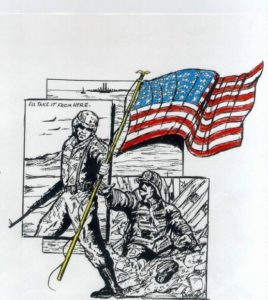
My god, did we ever take it. For twenty years. Ever since the attacks and the Afghan war’s end, people now want to debate whether they supported the war, lost interest because of corruption, or didn’t vote for certain politicians. But all those arguments are all smoke and mirrors to wax philosophical or virtue signal. The point they miss is that they got to be comfortable for two entire decades while our friends bled out or put firearms to their head to get the images of Afghanistan out.
Recently, a reporter asked me how the American populace was doing in “supporting our veterans.” I told him it was as simple as heading to your local Department of Veterans Affairs (VA). Observe how we’re treating our veterans. What is the VA known for? Competence or incompetence? I then followed up his question by stating that the cost of freedom post-9/11 was the sanity and lives of our warfighters. The rest of the populace got to collectively check out and argue about the latest political scandal or TV miniseries that caught their fancy.
I suppose that’s the point we often forget about 9/11. It cost everyone something. The freedom to be ignorant. The freedom to check out. Soldier’s lives. Family estrangement. Our country spying on us (The Patriot Act). Posttraumatic stress. Pain. Anguish. Grief. We all have some sort of scar from that day.
My mom used to think the towers falling didn’t affect her life until she visited Ground Zero. She and my grandmother booked a trip to New York City one year and attended a guided tour near the wreckage of the towers before the 9/11 memorial was built. While on the tour, the guide asked my mother a question that I believe we all need to continue to ask: “What has September 11th cost you?” Puzzled, my mother responded it had cost her nothing. The people of New York were the ones who felt the aftershock. She was comfortable living in Oklahoma. The guide pressed responding that the events of that notorious day had cost everyone something — even delayed flights at the airport. My mom thought for a moment, and then her face fell while tears rolled down her cheeks.
“My son,” she told the guide. “It’s cost me my son.”
Share this story
Share This Story, Choose Your Platform!


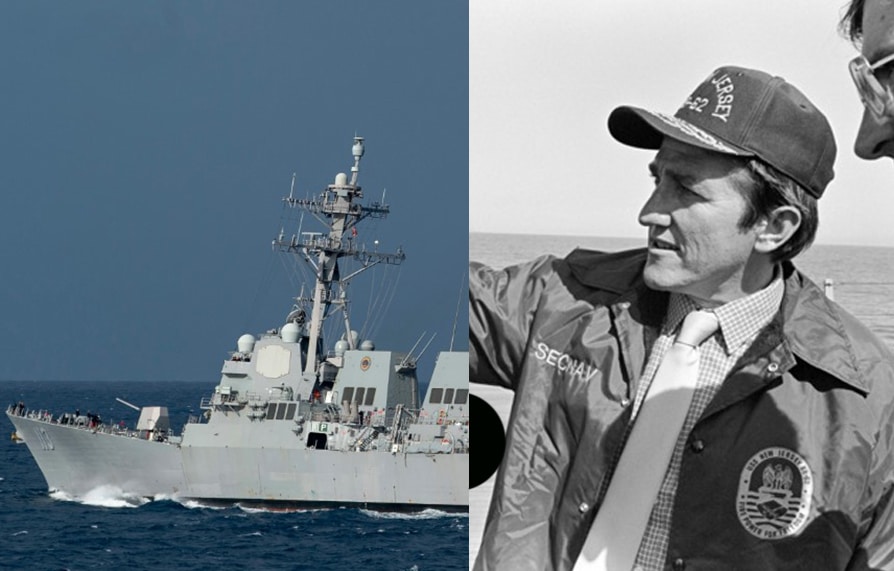

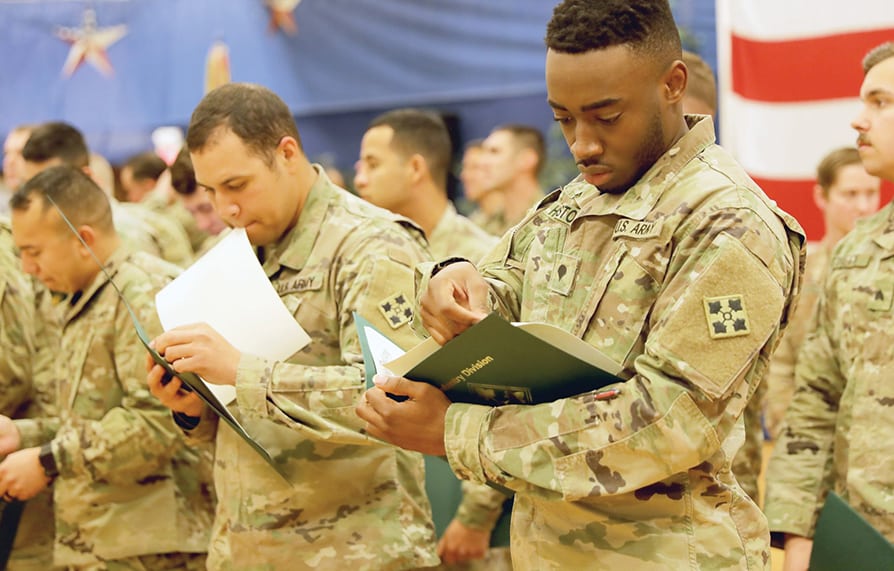
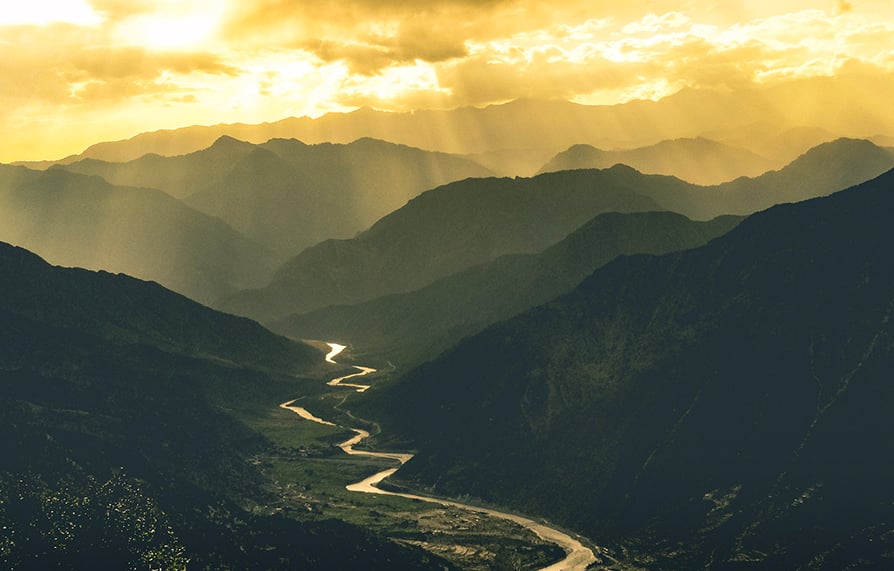
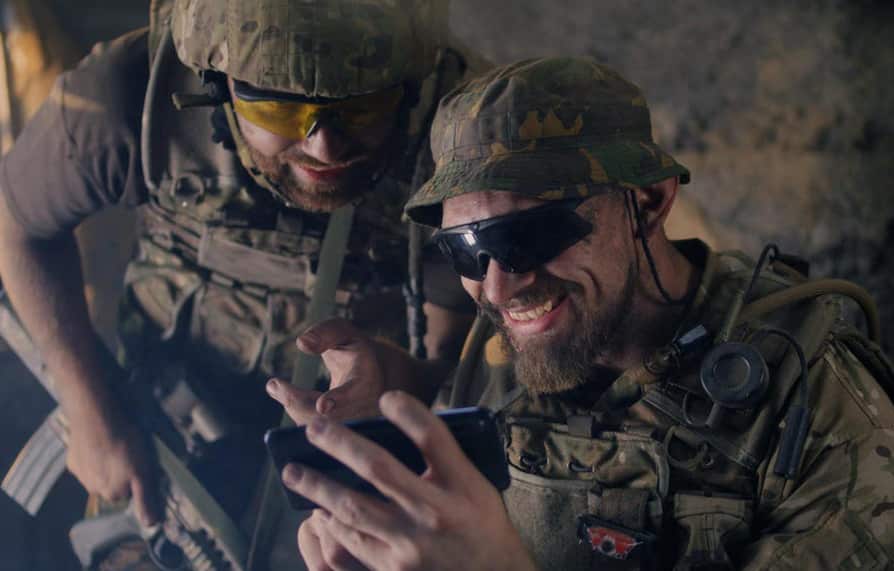
Leave A Comment